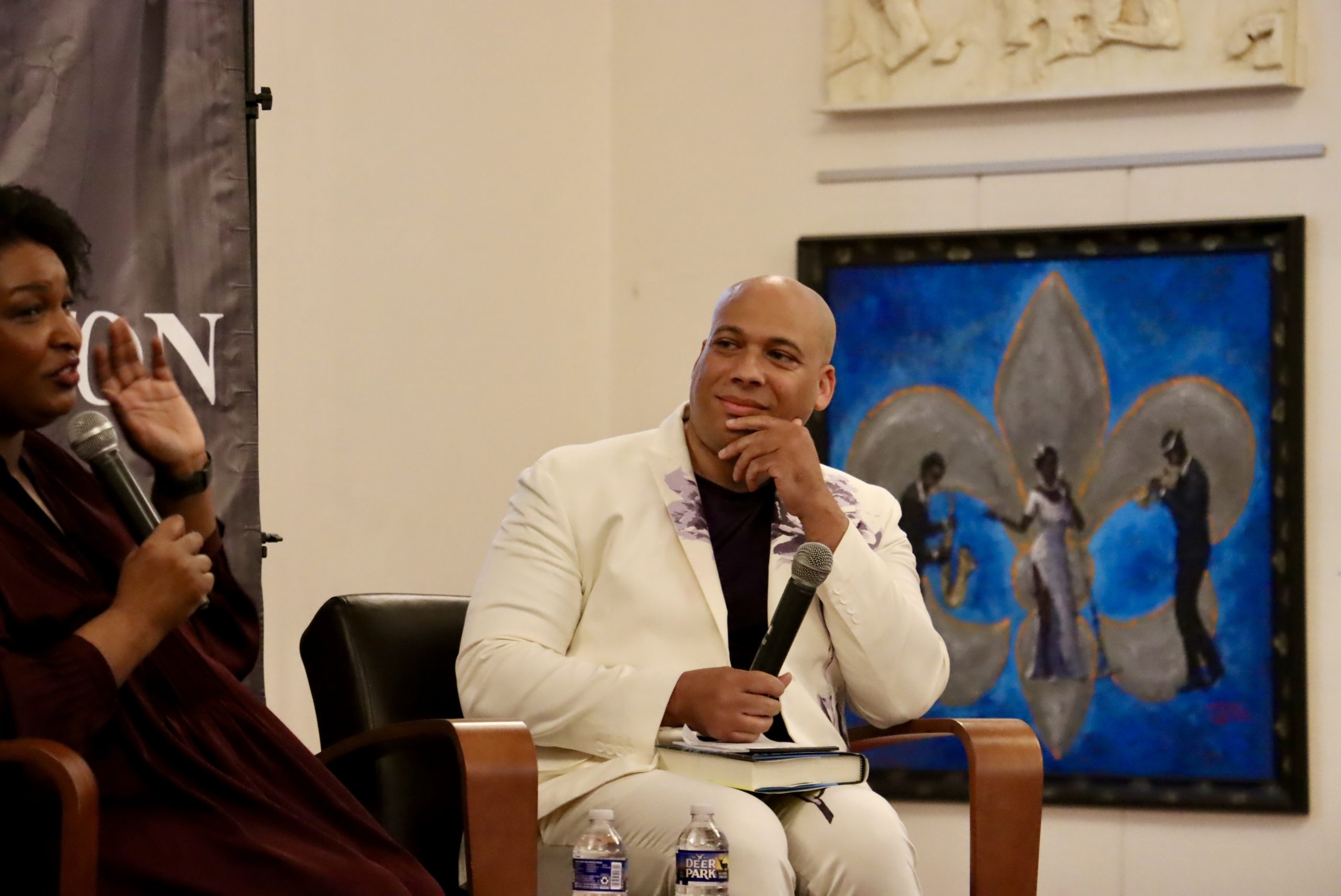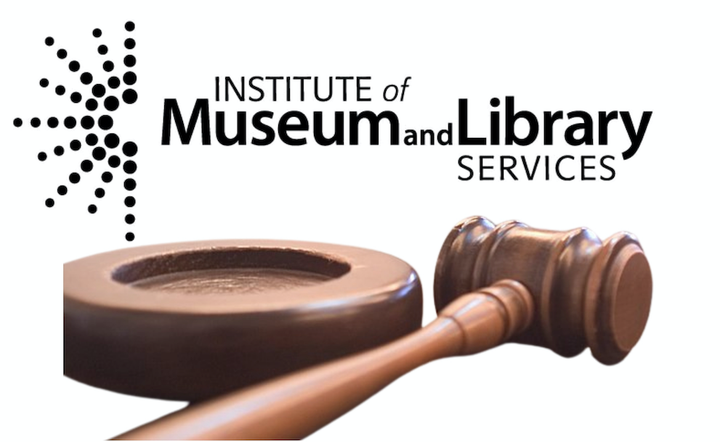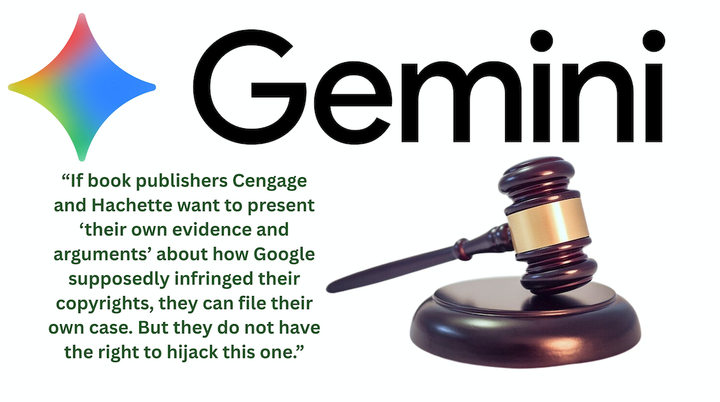The Queue: Library News for the Week Ending August 8, 2025
Among the week's headlines: Florida schools are prepping for the new school year by banning books; the Library of Congress explains how several sections of the Constitution were removed online; Arkansas fires its state library board; and Illinois enacts a new law to protect librarians.

With the new school year about to get underway, we lead this week with a look at how Florida school libraries are preparing to serve students by... banning books from libraries and classrooms? In a release this week, PEN America reports that school districts in at least nine Florida counties have removed "hundreds" of books in recent months to comply with a vague new state law.
According to an internal memo cited in the Sun Sentinel, Broward County is the latest to order 55 books on a state-sponsored list be pulled from school shelves, including titles such as Forever… by Judy Blume, Sold by Patricia McCormick, and Water for Elephants by Sara Gruen.

Supercharging the book bans, PEN America points out, is fear, which ramped up around the state after the Florida Department of Education's public flogging of Hillsborough County school officials in the spring.
"There is now a frightening shared understanding that if they quietly fall in line, they might stay off the state government’s radar a little longer," PEN America Florida Director William Johnson said in a statement this week. “Unless we speak up at school board meetings, in front of our state representatives, and in our communities, fear will continue to define the future of public education in Florida, becoming the new normal as the freedom to read is trampled.”
“Under the guise of affirming ‘parental rights,’ state leaders have used threats and intimidation to constrict our children’s access to information without or against our input," said Stephana Ferrell, director of research & insight at the Florida Freedom to Read Project, in a statement. "Defending the freedom to read does not forfeit our right or responsibilities as parents to discuss and set boundaries with our own children, but it does work to protect against someone else or the government taking that opportunity away from us.”
Stay tuned: the report comes as a federal judge in Florida is set to rule any day now in one of the nation’s most closely watched book banning lawsuits—a publisher-led challenge to two provisions of HB 1069, the 2023 Florida state law that opponents say has led to hundreds of books being pulled from Florida public school libraries.
Despite Concerns, Another Texas School Board Sets Up a 'Library Council'

Via KERA News in Texas, Plano ISD board members have "voted unanimously" to create an advisory council to recommend which books belong in school libraries. The move comes in response to the recently passed state law SB 13, under which local trustees are now empowered to create councils with the power to choose library books in their schools. But despite the unanimous vote, the report suggests the move isn't terribly popular.
"Trustee Michael Cook expressed concerns over the new council, worrying the board is setting itself up for problems," the article states. “My concern is that by bringing in such a small amount of parents, we are not representing the 47,000 kids we have,” Cook told KERA.
Library of Congress Blames 'Coding Error' for Deleting Parts of the Constitution Online

Lots of headlines this week about the mysterious disappearance of parts of the Constitution (conveniently parts that the Trump administration seems not to favor: habeas corpus, emoluments, etc.) from the Library of Congress's Constitution Annotated resource. The sections have since been restored, and Library officials have since blamed the removal on a coding error.
Above the Law has a good recap, and makes an important point. In past years, most of us would be inclined to believe that this was indeed just a harmless error. Not so in a Trump administration that embraces misinformation and is currently attempting to replace fired Librarian of Congress Carla Hayden with Trump's personal criminal attorney.
"Trump Derangement Syndrome is such a powerful gaslighting trope because Trump’s clumsy, ramshackle oafishness is a feature and not a bug," observes Above the Law's Joe Patrice. "A Nixonian power grab raises hackles, but bumble along embracing the stupidest fascism cosplay and one of two things happens: (1) you get away with it because the Supreme Court gave up on the rule of law or (2) you get called out and play it off as a joke that critics are 'crazy' for taking so seriously."
TechCrunch, meanwhile, has a little (very little) more on how the error apparently happened.

“When updating the site to reflect our constitutional scholars’ analysis of the impact of the latest cases on Article I, Sections 8-10, the team inadvertently removed an XML tag,” Bill Ryan, the director of communications for the Library of Congress, told TechCrunch. "A missing closing tag could plausibly result in missing text from the website, as anything outside of the tag would be ignored."
That's a completely plausible explanation, right? Shockingly sloppy work, but at least plausible. Still, how many of you want to see the changelog?
You're not alone. At least one member of Congress has asked Acting Librarian of Congress Robert Newlen for a better explanation. “Seeing the Library of Congress erase whole sections of the Constitution was deeply alarming,” Rep. Mark Takano (D-CA), wrote in an August 6 letter to Newlen. “Trump and his allies have mused about suspending Habeas Corpus, which made the deletion of this, and other articles in the Constitution even more distressing. The public deserves answers on how this happened, and I intend to get them.”
Arkansas Has Fired Its State Library Board

Via local affiliate UALR Arkansas Governor Sarah Huckabee Sanders is set to replace the Arkansas State Library Board after a new state law dissolving the current board went into effect this week.
The bill to fire the board was sponsored by state rep Dan Sullivan, who has criticized it for (among his complaints) refusing to cut ties with the American Library Association. "Sullivan had large objections to the board. He said they need to cut ties from the American Library Association, a group he described as 'Marxist' and 'heavily involved in DEI,'" the article notes.
Judge Rules that Librarian's Lawsuit against 'Moms for Liberty' Member Can Proceed
Via the Michigan Advance, a judge has ruled that a librarian's civil suit against a Moms for Liberty activist that allegedly harassed her can proceed.
"Christine Beachler, library media director for Lowell Area Schools in May filed a civil suit against Moms for Liberty associate Stefanie Boone, hitting back against what Beachler described as a 'smear campaign' including name calling, harassment and a flood of false statements posted to Facebook, including allegations that Beachler is providing pornography to minors," the Advance reports. "While Boone and her attorney Matt DePerno filed a motion to have the case dismissed without a trial, Judge Christina Mims denied that request on Friday."
The report also notes that Boone is counter-suing Beachler and the school district "alleging they had violated her parental rights." A decision on a motion to dismiss that action is pending.
Librarians Face Backlash Over Summer Reading Pick

WBUR reports that librarians at the Watertown (Massachusetts) Free Public Library are facing pushback over a summer reading list that included a picture book about the Palestinian experience.
"Librarians in Watertown have been flooded with more than 2,000 emails over a book included on their suggested summer reading list for second graders. Most requested the removal of a picture book titled A Map for Falasteen, saying it is antisemitic and anti-Israel," the report notes. "While some echoed calls to remove the book from the list, others decried what they said was an effort to silence a valuable and authentic perspective."
The report notes that library leaders are standing by their decision to include the book on their summer reading list.
"In a prepared statement, trustee chair Leanne Hammonds said, 'the library affirms its commitment to intellectual freedom and the rights of all individuals to choose their own literary pursuits at their own discretion,' explaining that their list was crafted with consideration of the previous year’s 'best of' lists, award winners, and reviews from established publishers, and that no one is required to read any of the books," the report notes.
News Corp Boss Pushes Back on Trump's Take on AI and Copyright

As we reported last month, despite all the time and effort publishers and authors invested in providing comments for the Trump administration's highly anticipated report on AI, the document failed to even mention the word "copyright". Furthermore, in public comments Trump himself suggested that creators' rights are an obstacle to the development of AI. Not surprisingly, at least one major media mogul is taking exception to that view, writes Jim Milliot at Publishers Weekly.
"Much is made of the competition with China, but America’s advantage is ingenuity and creativity, not bits and bytes, not watts but wit," Robert Thomson, CEO of HarperCollins parent company News Corp, told reporters during an earnings call. "Thomson concluded that since AI companies are spending tens of billions of dollars on data centers, chips, and energy generation, those companies also "need to spend tens of millions or more on the content crucial for their success." For good measure, the Trump-friendly CEO also threw in a comment about making sure AI services aren't "woke."
Meanwhile, in Thomson's home country of Australia, lawmakers are said to be considering a copyright exception for AI.

The Australian government's "Productivity Commission is examining whether technology firms should be exempt from copyright rules that stop companies mining text and data to train artificial intelligence models," reports The Guardian. That suggestion, the report points out, has been opposed "by the Copyright Agency," the not-for-profit group that collects and distributes royalties to copyright holders, which is instead urging the government to create "a new compensation scheme for creators of content used by tech companies to train their AI models."
Over at The Conversation, Alice Grundy also weighs in on the Australian commission's efforts.

"The Productivity Commission estimates a potential A$116 billion over ten years flowing into the Australian economy, thanks to AI. Of course, this comes after large language models have already 'trained' on masses of Australian copyright material, breaching copyright law," she writes, concluding that "creating greater leeway in Australian laws" could be seen as "tacitly endorsing currently unlawful practices."
The 'Local Control' Lie

Over at Book Riot, Kelly Jensen leads off her weekly censorship news column with a sharp take on what new laws in Florida and Texas will mean for the book banning movement nationwide, and more broadly about the false pretense these bills and others are built upon.
"For the last four and a half years, book banners have shouted about curating collections in their own public schools and libraries being about 'local control.' And yet, none of the laws being passed are actually about local control. They’re about the government doing precisely what the book banners insist they’re against: co-parenting with the government."
Illinois Governor Signs Law to Protect Librarians

Via River Bender, a bipartisan bill drafted by Illinois Secretary of State Alexi Giannoulias to enhance safety for librarians has been signed into law.
"The legislation comes after several libraries across the state received bomb threats in recent years, including the Illinois State Library. There have been more than 25 bomb threats with multiple libraries responding to repeat threats during the past two years," the report notes. "Under the legislation, state library grant applicants will have the ability to use funding to install things like security cameras, silent alarms, or security check points, for which funding is not always available and until now grants were not authorized to support."
Kanopy's Hollywood Moment Continues with Award-Winning Filmmaker Deal

Via IndieWire, Kanopy, the OverDrive-owned streaming service for public libraries, has inked another deal, this one with award-winning filmmaker Charlie Kaufman, to debut his new short film “How to Shoot a Ghost” on the platform.
"The collaboration with Kaufman marks the latest ambitious expansion for Kanopy. The service, which launched in 2008 and is now available to over 50 percent of library cardholders in the United States, released its first original feature film, the book-banning documentary Banned Together, in April 2025," IndieWire reports. “Given the crisis of education in this country, it remains as important as ever for citizens to continue to have barrier-free access to the wealth of free resources that libraries have always offered,” Kaufman said in a statement.
And Finally This Week...

Via Spotlight Delaware, it sounds like the Wilmington (Delaware) Public Library will really miss its departing executive director Jamar Rahming, and that Rahming’s new employer, the Cuyahoga County Public Library in Ohio, has a lot to look forward to.
"Since 2018, Rahming led the Wilmington institution through a period of rapid growth, expanding its youth outreach and attracting nationally recognized celebrities, authors, and political leaders to the city,” the article notes. “During his seven-year tenure, Rahming redefined the Wilmington library for the working-class city. After canvassing neighborhoods early in his term, he and his team found that many residents had never traveled beyond the city. It was a realization that shaped Rahming’s vision to ‘bring the world to Wilmington,' which he did through, among other things, 'an intensely popular' celebrity speaker series."
CCPL announced in May that Rahming had been selected to succeed the retiring Tracy Strobel as CEO. Rahming, who was chosen after a nationwide search assisted by library consultant June Garcia, will begin on Monday, August 11. He is the first African American person to lead the CCPL, widely regarded as one of the nation’s best public library systems.
Meanwhile, Cyndee Landrum, the Wilmington Public Library’s interim executive director, told reporters she is confident the library will find a new leader “who can maintain the programs and services" that Rahming started. “We will find someone who will probably be different than Jamar, but who will also be equally as dynamic, maybe in a different way, and be able to be equally as successful in serving the people of Wilmington,” Landrum said.














